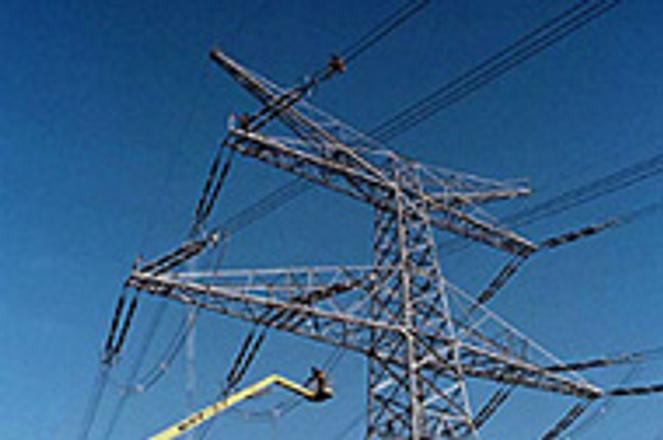Cabinet decided December 15 to increase regulated prices as of February 1, the fourth time that prices have been hiked significantly in two years.photo: TASR
Government approval of a new package of hikes in regulated prices for households and business have brought vows from unions to fight for wage increases.
The hikes, which will affect tariffs for gas, power, water and transport, were less than the Economy Ministry had originally proposed to the government, however, and will take effect one month later than had been expected - February 1.
Under the approved rises, electricity for households will increase 15% while firms will pay 12% more. Natural gas will become 20% more costly for households, 15% higher for medium-sized corporate customers and 25% for large volume customers. Water rates will be raised 20%, and rail and bus fares 15% and 20% respectively.
The ministry had originally proposed 20% rises in electricity for households, 25% for gas for households and 30% for large-volume customers. The cost of heating, which will rise on January 1, ahead of the other increases, will also increase 20%.
Following the announcement trade unions, especially miners' groups, said that the increases would eliminate jobs and force many companies into bankruptcy.
The Confederation of Trade Unions (KOZ) denounced the rises as being too steep.
"Unions are not against an increase in principle. However, it has to go hand in hand with an increase in wages - which, from what we know so far, is not going to happen in the near future," the KOZ's Miloš Kršák told The Slovak Spectator December 19.
"We have proposed several changes to the price hike. Because of this we managed to get the increase in the prices of electricity for citizens cut [from the level originally proposed] from 20% to 15% and for bus transport from 20% to 15%. We also managed to delay these increases until February. We wanted to get the government to increase prices only by the rate of projected inflation for next year [6% to 8.5%]. Unfortunately we couldn't get that. We got what we could."
He added: "That battle is over, but now, in individual collective bargaining sessions, we are going to try to force employers to increase wages, as well as to push the government to raise them as well."
However, analysts have dismissed the threat from the unions. "Unions in Slovakia are very weak. It's not as if they have the kind of power that they do in Poland. They may issue strong words, but they really can't do very much," said Miroslav Kňažko of the economic think-tank MESA 10.
In announcing the package of increases, Deputy Prime Minister for Economy Ivan Mikloš said that the rises would amount to no more than an extra 500 crowns ($10) being paid by households every month, adding that the recommendations of business and union leaders had been taken into account in formulating the package.
Finance Minister Brigita Schmögnerová of the Democratic Left Party (SDĽ) admitted, though, that families would be forced to bear a tough extra financial burden next year.
Spokesman for the Finance Ministry Peter Švec described the rises as "a compromise that the Finance Ministry is willing to accept", adding "we are going down a path to deregulation, but we will continue on this path very carefully".
Analysts have praised the proposals, saying that despite any potential unpopularity the government's final approval of rises would actually benefit consumers in the long-run.
"It's good news that the government has finally approved these rises. From the long-term point of view people are actually gaining because, yes, they will have to pay more as end-users, but there will be less in taxes over the long-term," said Pavol Ondriska, analyst at Slávia Capital brokerage house.
"Every commodity has to be paid for by someone in some way in the end," he added.
MESA 10's Marek Jakoby said: "There are sound economic reasons for the rises, and if we didn't raise them now we'd have to pay more in taxes later. People are actually probably gaining."
The government had long held that price rises were an inevitability in the run up to the privatisation of state-owned firms such as Slovenský plynárenský priemysel (SPP), the world's second-largest gas distributor, power monolith Slovenské elektrárne (SE) and water utility Vodárne a Kanalizácie (VaK), and the gradual liberalisation of utility markets. Deputy Prime Minister Mikloš has made it clear that the state can no longer bear the financial burden of keeping prices artificially low.
The government also moved to allay fears that inflation would be adversely affected by the rises.
"The original calculations of the central bank had said the impact [of the rises on inflation] would be at 3.5%, so now [with the lower than expected rises] we can expect something below this figure," Mikloš said.
"What we have today does not carry any serious inflation risks," he added.
The central bank expects end-2001 headline inflation to be between 6% and 8.5%.
Analysts have agreed with Mikloš's predictions but warned that people on pensions would be hit hard nevertheless.
"While our predictions may show a 2% rise in inflation [as an impact of the price hikes], the rise will affect different people in different ways," said Ondriska.
"Two percent may not seem like much, but it will certainly affect those whose incomes don't increase, such as pensioners."
Additional reporting
by Peter Barecz


